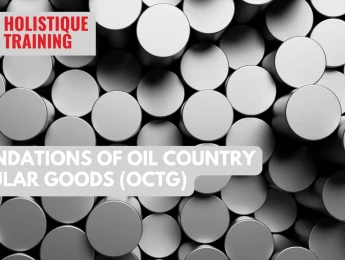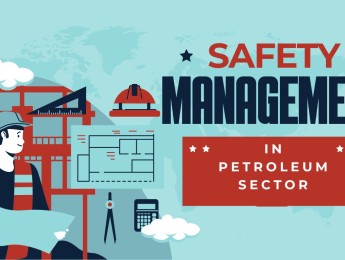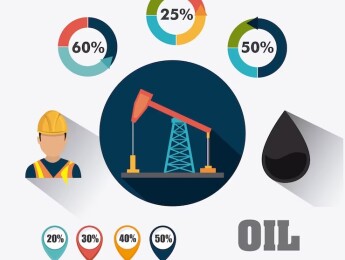The "Oil and Gas Financial Modeling: Strategies for Effective Decision-Making" training course is tailored for professionals in the energy sector who aim to enhance their financial analysis and decision-making capabilities. Financial modelling is crucial for navigating the complex economic landscape of the oil and gas industry, where volatile markets, high capital investments, and intricate regulatory frameworks demand precise and strategic planning.
This course equips participants with the skills to develop robust financial models that capture the unique characteristics of oil and gas operations. Participants will learn to analyse project feasibility, forecast cash flows, evaluate investment opportunities, and assess the financial impact of industry risks. The training covers core concepts such as exploration and production economics, reserve valuation, sensitivity analysis, and fiscal regimes, with a strong focus on practical applications.
Participants will build financial models for upstream, midstream, and downstream operations through hands-on exercises and real-world case studies. They will also explore integrating financial tools to simulate market conditions, enabling more informed and resilient business decisions.
Ideal for financial analysts, energy consultants, project managers, and executives in the oil and gas sector, this course provides the technical expertise needed to drive organisational growth and profitability. By the end of the training, participants will have the confidence to create and utilise financial models that support strategic objectives and mitigate industry uncertainties.
Upon the completion of this course, participants will be able to:
- Provide an in-depth understanding of financial modelling principles in the oil and gas industry.
- Equip participants with the skills to evaluate project feasibility and investment opportunities.
- Develop expertise in forecasting cash flows and conducting sensitivity analyses.
- Teach strategies for assessing fiscal regimes and regulatory impacts.
- Enable participants to build comprehensive financial models for strategic decision-making.
This course is designed for:
- Financial analysts and energy consultants in the oil and gas industry.
- Project managers and executives responsible for investment decisions.
- Engineers transitioning into financial planning roles within energy companies.
- Professionals in banking and private equity focused on energy sector investments.
- Students and individuals aspiring to specialise in oil and gas finance.
The course employs a hands-on and interactive approach to ensure participants gain practical expertise in financial modelling. Training sessions combine lectures with live demonstrations, where trainers guide participants through building financial models step-by-step.
Participants will engage in group activities and scenario-based exercises to apply learned concepts to real-world oil and gas projects. Industry case studies provide insights into best practices and illustrate how financial models inform strategic decisions.
Advanced tools and templates are introduced to streamline model development, and participants receive personalised feedback on their exercises. Digital resources, such as video tutorials and model templates, are made available to support post-course learning.
Day 5 of each course is reserved for a Q&A session, which may occur off-site. For 10-day courses, this also applies to day 10
Section 1: Introduction to Oil and Gas Financial Modeling
- Overview of financial modelling in the energy sector
- Key economic drivers in the oil and gas industry
- The Role of Financial Models in Project evaluation and Decision-making
Section 2: Building the Foundations of Financial Models
- Understanding financial statements and key performance metrics
- Designing model structures tailored to oil and gas operations
- Data collection and integration into financial models
Section 3: Exploration and Production (Upstream) Economics
- Reserve valuation and resource classification
- Cost estimation for exploration and development projects
- Forecasting production and revenue streams
Section 4: Midstream and Downstream Financial Analysis
- Modelling pipeline transportation economics
- Refinery cost structures and profit margins
- Market dynamics and pricing strategies for downstream operations
Section 5: Risk Management and Sensitivity Analysis
- Identifying and quantifying industry-specific risks
- Conducting sensitivity analyses on key variables
- Scenario planning to address market volatility
Section 6: Fiscal Regimes and Regulatory Impact
- Understanding taxation and royalty structures
- Modelling the financial implications of fiscal regimes
- Navigating compliance and regulatory changes
Section 7: Advanced Techniques and Applications
- Leveraging Excel and financial modeling software for automation
- Integrating financial models with market simulations
- Presenting financial insights to stakeholders effectively
Upon successful completion of this training course, delegates will be awarded a Holistique Training Certificate of Completion. For those who attend and complete the online training course, a Holistique Training e-Certificate will be provided.
Holistique Training Certificates are accredited by the British Assessment Council (BAC) and The CPD Certification Service (CPD), and are certified under ISO 9001, ISO 21001, and ISO 29993 standards.
CPD credits for this course are granted by our Certificates and will be reflected on the Holistique Training Certificate of Completion. In accordance with the standards of The CPD Certification Service, one CPD credit is awarded per hour of course attendance. A maximum of 50 CPD credits can be claimed for any single course we currently offer.
- Course Code IND01 - 148
- Course Format Classroom, Online,
- Duration 5 days












